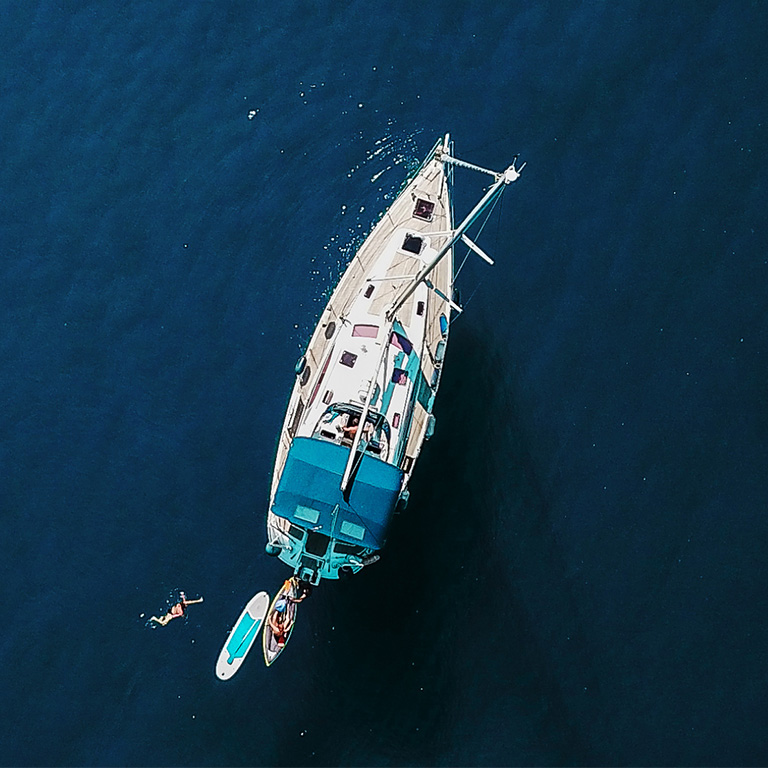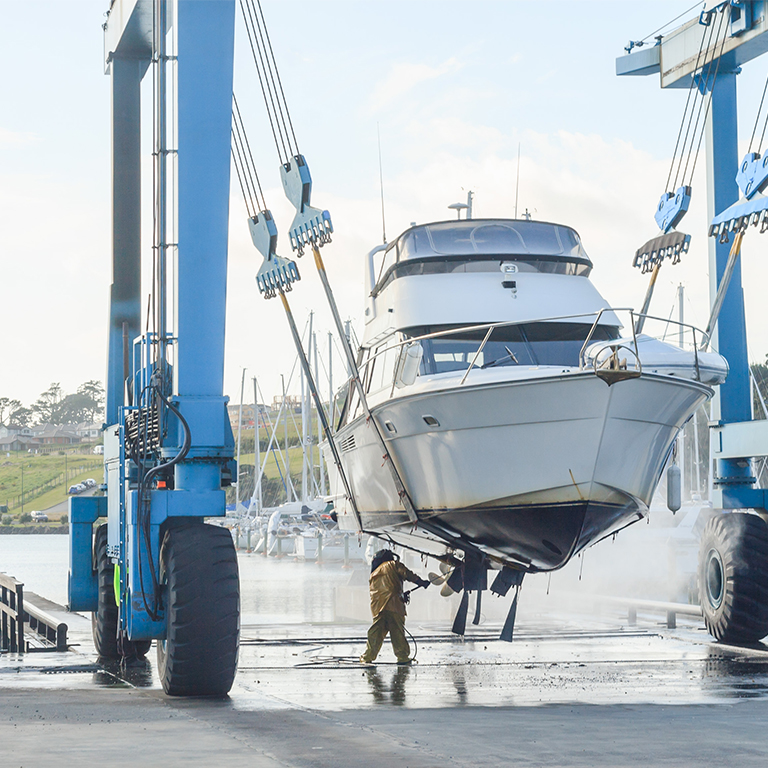A guide to sustainable sailing: Being a responsible sailor
Sailing offers a unique way to connect with nature, explore new places, and enjoy the freedom of the open water. However, with this privilege comes the responsibility to minimise your environmental impact on each journey or sailing adventure.
Sustainable sailing is crucial to:
- Preserving marine ecosystems.
- Minimising pollution.
- Protecting wildlife, the sea and the planet.
By reducing our environmental footprint, we safeguard our seas' natural beauty and biodiversity. And we can promote long-term ecological balance and environmental sustainability.
In its Sustainability Agenda 2030, World Sailing sets out a series of recommendations to achieve substantial change within the sport, contributing actively to global sustainability.1
We can all play a part and adopt environmentally friendly practices, whether on a sailing holiday or in your general sailing activity. Here are some tips for enjoying sustainable sailing and being a responsible sailor.
1. Recycle and reduce waste
Appropriate waste management is crucial to preventing pollution in our oceans. Think about:
- Packing efficiently - choose reusable containers and avoid single-use plastics. Opt for biodegradable products if possible.
- Managing your waste onboard - store all waste until you can dispose of it properly onshore. Adopt a waste sorting system to separate recyclables from general waste.
- Disposing waste responsibly - use recycling facilities and disposal services available at marinas and ports. It goes without saying you should never throw rubbish or waste overboard.
Discharging untreated sewage or greywater into the ocean can harm marine ecosystems and water quality. So consider installing a holding tank for all sewage and discharging it at approved pump-out facilities.
You can even recycle your sail. Sustainable Sailing is using advances in green chemistry to help reduce waste in the marine industry.
2. Minimise fuel consumption
One of the benefits of sailing is the ability to harness wind power. To further minimise fuel use, think about:
- Planning your routes - use weather forecasts and wind patterns to plan your routes. This can maximise sailing time and reduce the need for motorised travel.
- Maintaining your engine - regular maintenance ensures your engine runs efficiently. This in turn will help reduce fuel consumption and emissions.
- Harness wind energy - use your sails instead of the engine whenever possible, particularly for short distances.
3. Protect marine life
Sailing in pristine environments requires care and respect for marine ecosystems:
- Use eco-friendly products - choose marine-safe, biodegradable, non-toxic cleaning and hygiene products that are less harmful to marine life.
- Avoid sensitive areas – don't anchor in coral reefs or seagrass beds if you can avoid it. Use designated mooring buoys instead to prevent damage to delicate habitats.
- Practice responsible wildlife viewing - observe marine life from a distance. Do not feed or disturb animals, and adhere to local guidelines for wildlife interaction.
4. Energy efficiency and renewable energy
Reducing energy consumption onboard can contribute to a more sustainable sailing experience. You might want to:
- Switch to LED lighting - LED lights consume less power and have a longer lifespan than traditional bulbs.
- Invest in renewable energy – Speak to a professional about installing solar panels or a wind generator to harness renewable energy for your boat's electrical needs. This will reduce reliance on fuel-powered generators.
- Monitor energy use - look for ways to reduce energy use. Such as switching to energy-efficient appliances and turning off equipment when not in use.
5. Responsible maintenance
Boat maintenance can have a significant environmental impact if not managed properly. Make sure you:
- Use non-toxic paints and cleaners - opt for eco-friendly, non-toxic bottom paints and cleaning products. This can reduce the release of harmful chemicals into the water.
- Carry out effective waste disposal - collect and dispose of used oil, filters, batteries, and other hazardous materials at approved facilities. Avoid letting paint, solvents, or other contaminants enter the water.
6. Advocate and educate
Promoting sustainable sailing practices can help to raise awareness amongst the sailing community and marine industry, and encourage others to take action. Share your knowledge and educate fellow sailors about sustainable practices and protecting our marine environment.
By adopting these practices, you can enjoy the beauty and adventure of the seas while ensuring you leave a minimal environmental footprint. Sustainable sailing protects and preserves the oceans for future generations to explore and appreciate.
If you are looking for advice to make sure your boat is properly insured, get in touch with a specialist broker like our team at Bishop Skinner Marine.
Sources
1.sailing.org/SustainabilityAgenda2030-[23247].pdf
This is a marketing communication.


